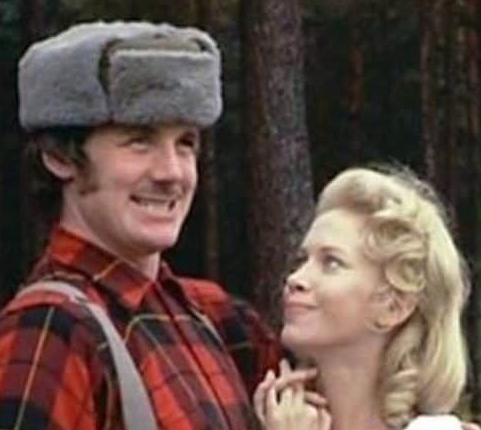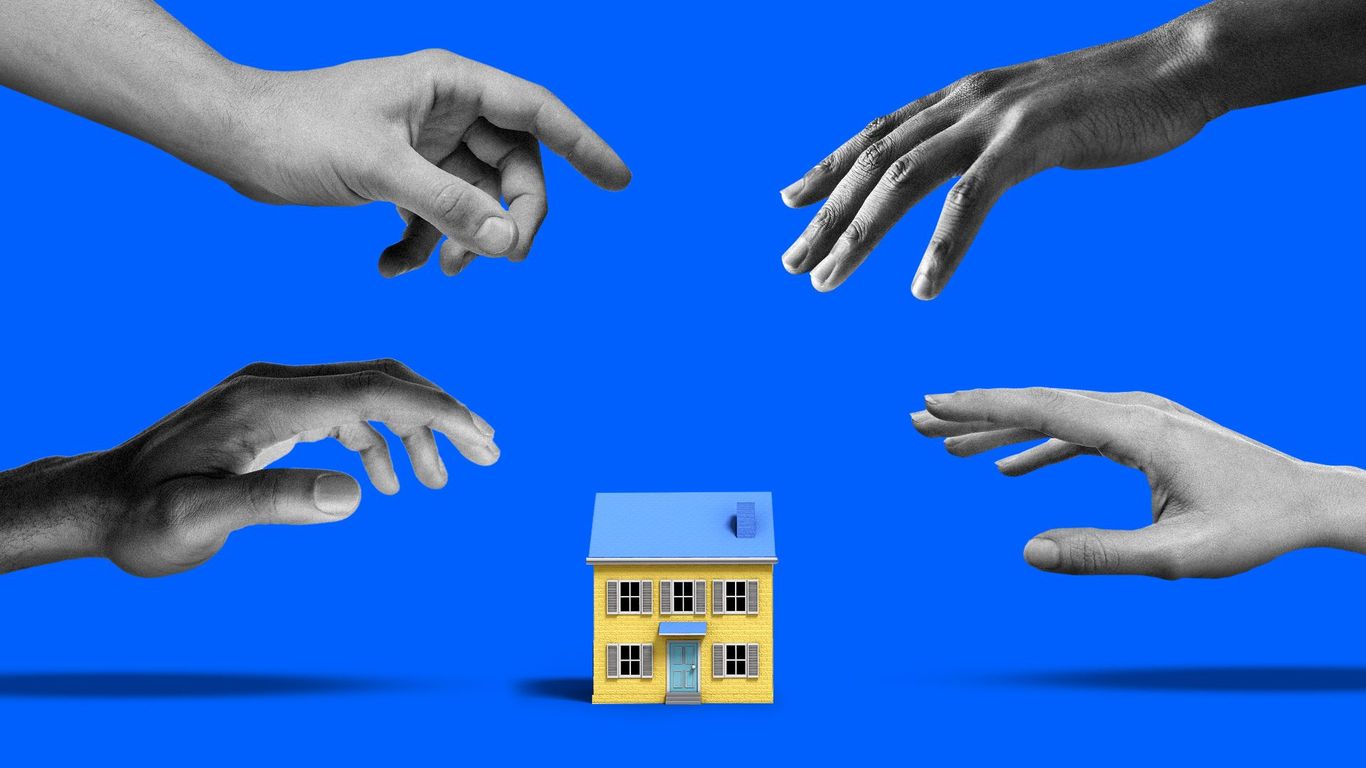We’re also seeing a rapid increase in commercial vacancies with WFH. But there are big challenges and costs to turning commercial properties into residential.
I’ve heard a lot about the problems. Surely there’s some good ideas for a solution out there?
I mean, one good long term solution is either ban or heavily, heavily tax corporate ownership of single family homes. And heavily tax short term vacation rentals. Basically force all the companies that are buying up blocks and blocks of single family housing to sell.
Then, take a look at zoning laws. I have no experience with this side, but they’re probably often a barrier to creating medium or high density housing. Which we’re gonna need a lot of in the near future.
Apparently foreign home ownership is a big issue in Canada, so I have to assume it’s also a (smaller) issue in the US.
Basically, the issue I see is not that there isn’t enough housing. It’s that corporate greed is pricing people out of their neighborhoods and then the houses are sitting empty because they’re barely worth $150k, but the “market” says they can be listed at $400k, and not many people can afford that.
A lot of this comes from the mindset of real estate as an appreciating asset. That drives the desire to buy and hold, because it only ever goes up.
Why do you think opportunity cost isn’t coming into play? If you’ve got a house only as an appreciating asset that’s not generating income, you’re losing money compared to just throwing it in the stock market. If they’re just holding it because the value always goes up, that sounds exactly like 08, and the price would have to come down once the bubble pops.
Historically, I think, housing is less volatile than the stock market. So there’s a risk mitigation strategy there that may partly be in play with companies that are purchasing single-family homes and just squatting on them.
This may also be exacerbated by rising interest rates. So companies/individuals that purchased a historically low rates are/may be reticent to sell because they can’t secure a loan with the same rates they currently have. Even IF the housing isn’t actively generating income, it could be losing LESS just due to the rates.
This is all entirely speculation on my part. I’ll freely admit I don’t know.
I see the narrative a lot that it’s caused by people holding onto housing as an investment, and that might be true, but I’m unconvinced it’s anything more than a supply problem. No doubt what you described about people reluctant to sell in the current market is happening, but if a house is truly only worth $150k, it should sell for $150k, and the person trying to sell it for $400k will keep dropping the price until it reaches what it’s worth as the owner gets impatient and has to pay upkeep on it in the meantime. There are stats for how many homes are sitting vacant, but often times I understand that they capture a snapshot in time of when those homes are between owners or tenants, and what was vacant at snapshot 1 may be a totally different sample than what’s vacant at snapshot 2, even though the number of vacant homes remains similar.
Here’s another thing that may be having an impact, but I have no idea how large: a lot of baby boomers are still living in their “forever homes” that they bought decades ago for families that were much larger before their children moved out. So you have a lot of people with proportionally too much house for what they actually need that, to make this topic a bit more morbid, will start dying off in greater numbers as the years go on and freeing up that housing inventory for families that would need that much space.
So companies/individuals that purchased a historically low rates are/may be reticent to sell because they can’t secure a loan with the same rates they currently have.
Can confirm, the interest rates have been a huge deterrent to me for selling my home and moving. My current interest rate is 2.75%, back when I was looking around I was being quoted around 7%, which would have had a significant effect on my monthly payments.
It’s easier to wait out the storm and move when the interest rates (hopefully) recover. They seem to be improved since I last was looking at places, but I don’t think I’ll be abke to get a rate close to what I have anytime soon :(
A lot of people here in the US have bought into this as their retirement strategy. The value needs to go up, so they can downsize and ride the leftover cash for the rest of their life. If the number doesn’t go up, they can’t retire. This forces otherwise normal people to become very, very, invested in ensuring real estate is an asset with value that outpaces what people can afford. It’s a ponzi scheme.
With inflation causing rents to go through the roof, houses being bought to be rented is just going to increase even more. I’ve had several houses in my neighborhood sold in the last few months be bought and immediately have “Available for Lease” signs put out.
We need to have something done to de-incentivize the idea of real estate as an investment and treat it like the necessity it is.
But, hear me out: HAvE yOU thInK oF ThE LAnDLorD?
Capping rental rates to mortgages is the best solution. Whatever the mortgage is, you can’t charge a penny more than that.
Any tax burden will be passed to the renter without a cap on rental rates.
A use it or lose it policy would also be effective. Rent or sell an unoccupied house or it is turned over to the city council at half tax assessment value.
You need to have teeth, actual losses to encourage them to move.
capping rents to the mortgage means you can only rent out a property at a loss, because you can’t recoup repairs, maintenance, utilities, vacancy, or administrative fees through rent. this effectively makes being a landlord illegal, which you’d might as well do outright if that’s the objective.
The thing that bothers me is the shortage is completely artificial. There are approximately 28 vacant homes in America for every unhoused person. I live next to a housing development with an ungodly number of 4 bed 2.5 bath McMansions, most of which have, as far as I can tell, sat empty for the last two years. Not for sale, not for rent, just parked as an investment.
This 100%. There is no shortage of physical houses. There is a shortage of AFFORDABLE houses.
I just went through the buying process. I don’t make any crazy money, but a totally fine amount, more then a lot of people (65k/year)
That meant even with a sizable down payment that I was rather lucky to have, my MAX was 200k. That meant I could afford like… 1/10 of the places for sale where I live.
and we’re soon going to find out if Biden’s student loan forgiveness is going to be canned by fascist ideologues or if the midterms spooked them well enough to handle it correctly. If they decide to pull some shenanigans, there’s a real possibility that we’re staring down the barrel of a 3rd once in a lifetime economic crash from yet another bubble.
Yes, same. I considered buying but given the 3% increase in the interest rate we saw, I’m just going to keep renting and hoping that things come back down before I’m 100 years old.
The only reason I got away from renting, even with the interest, was that it was still gonna be $100 cheaper, except +1 bed +1 bath and I actually OWN it.
Plus, with my loan the interest rate can’t go any higher, but can be refinanced if things go lower. So since I was basically break even on the current interest, I decided to take it.
I sort of like the idea that I can just… leave… and not worry about having an expensive albatross hanging around my neck. And my rent is low for the area so I’m doing better for now renting. I’d like to own eventually, I guess, but I prefer not to spend more per month if I can avoid it.
My rent was gonna go up $300, so that made it pretty easy as well haha. (I woulda stayed renting too if it had been cheaper /month)
I deal with a lot of small business owners and it’s amazing how many of them have second homes. These guys are well-off but not what you think of as ultra wealthy. I think housing has been such a high-return investment that both corporations and individuals have been buying up houses they don’t need.
Most states in the US I believe have homestead exemptions for property tax on your primary residence. Maybe if they just jacked the prop tax way up on anyone or entity that owns more than one single family property that would make it a less enticing investment.
Honestly I’d scale it. There’s a lot of people who don’t sell their first home when they move into their second and it’s helping them financially to rent it out. I don’t want to go after these people…
Raise the tax per every house you’re doing it with. Make it prohibitive at scale.
That’s not a bad idea. Tax rate is X. First house is X. Second house is XY, third house is XY*Y, etc.
Problem is property rates are usually city, county, state so you’re not going to see consistency between them.
Just let people build more housing. In most American cities it’s either totally impossible or so expensive only millionaires and big real estate companies can afford it. There’s no reason for a permitting process that takes 5 years or for single family zoning, other than homeowners self interest and racism.
Completely reversed cause and effect. High home prices are causing the housing “shortage”
What do you suppose causes high housing prices then?
Corporations buying them up to rent out is my speculation, between that, people attempting to flip them, and just regular home buyers, it’s making for a very low amount available which causes prices to be high, and new houses aren’t being built fast enough to keep up.
I live in an older neighborhood and at least 50% of every house that has gone on the market since we bought in 2019 has been sold to flippers and listed for $200k more 3-6 months later. I can’t believe how much they have driven up prices in the area.
Speculation and, more broadly, commodification.
Those are definitely factors as well but I think they are only enabled by the lack of supply. People can’t bid up the price of something if more can be easily produced in response.
There is no lack of supply. The supply of empty homes far exceeds the number of unhoused people.
A literal truth that ignores the logistical, geographic, and political difficulties of getting those people into those houses.
Historically speaking vacancies are extremely low currently, particularly in areas where housing prices are high and homelessness is common. These problems appeared as the ratio of people to housing increased and it’s not a coincidence.
The easiest solution will be to build more housing where it is most needed, though that takes time and other strategies will be necessary in the interim.
The difficulty is capitalism. Houses should not be commodities to be bought and sold.
To a degree, construction costs. We tried to build a house a couple of years ago. Got pretty far down the road, having reserved a plot, picked out a floorplan, paint, etc. When it came time to appraise, it appraised $60k under cost and the plans fell through - we’d have had to give up everything that was motivating us to build in the first place and pay twice what out current home costs for essentially a side-grade.
We’ll try again once the kids move out and we’re looking for a “forever home” without stairs and stuff that we can grow old in.
This got me thinking, I wonder if the reason they don’t fix homelessness is to create artificial scarcity for home values
Capitalism requires that there are people in poverty, that’s part of it’s function.
Of course. The people who run cities are almost always multi-millionare landowners and their friends all have real estate investments too.
They either make it illegal to build densely, or they put obstructions in the permitting process to restrict how much is created.
Well there are big costs in any home building project, and something has to be done. Some buildings will never make viable homes, but a good portion still could - and given their prime locations it might be worth it.
Cbc’s “about that” did a good report on this: https://youtu.be/cSXRLg29OHs











